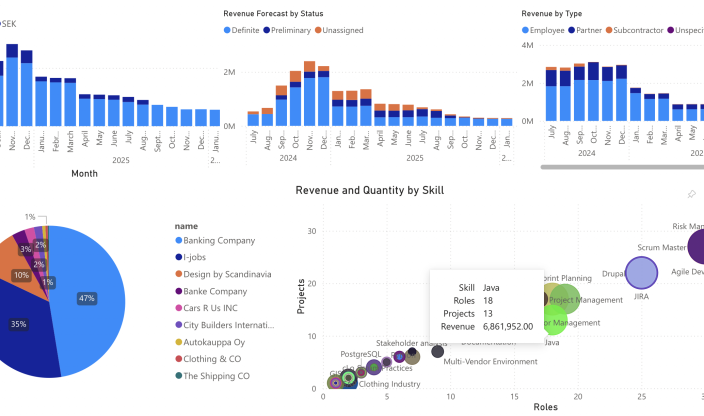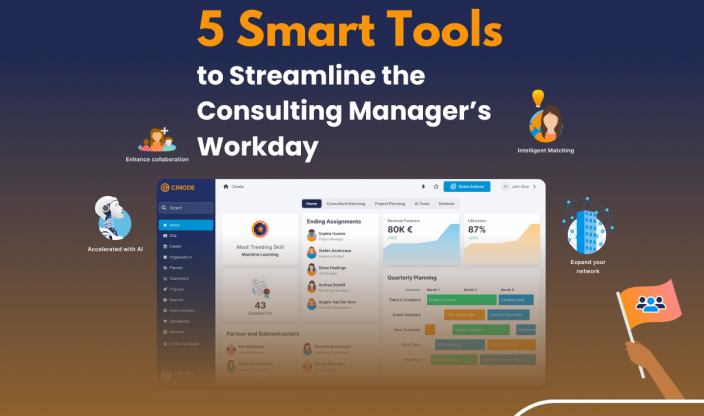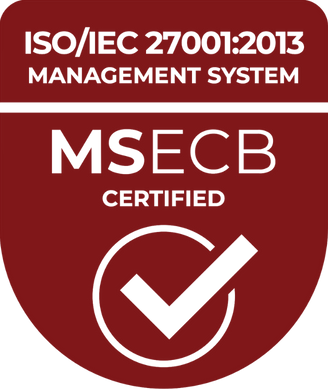The consultant role today and in the future

What is the difference between a traditional job interview and a consultant interview? What is good to keep in mind before a consultant interview? And is a consultant manager really necessary?
In my second blog post I will also outline the pros and cons of working as a consultant.
There is quite a significant difference between a job interview and a consultant interview. A typical job interview usually takes much longer, and it might even require two interviews. During a regular job interview, they ask about your interests and what you do in your free time. They also ask situational questions.
A consultant interview, on the other hand, is very quick. The client wants to meet you promptly and see if you “fit in” with the team. Is this someone who can collaborate with others in the group? The first impression is very important. The client wants to hear about your experiences that might be relevant to the role, and the consultant usually receives feedback very quickly.
Reference checks are not usually part of a consultant interview, but they are often conducted in a regular job interview.
What are the keys to a successful consultant interview?
Initially, let the client explain the assignment and the company. Then, as a consultant, you should prepare how to answer the question, “Please share a bit about your background and experience.”
Focus on highlighting qualifications and skills that are particularly relevant to the assignment at hand. Avoid listing all the projects you’ve been involved in; instead, emphasize aspects of your past work that you believe will be useful for this specific assignment, or relevant courses if you are a recent graduate.
During a consultant interview, it’s also crucial to be curious and ask questions. Instead of starting with a question like, “Can I work from home?” consider asking questions such as: What programs do you use? What are your future plans? What do you need help with? How do you approach sustainability?
You might come up with additional follow-up questions as well. It’s better to ask many questions than none at all.
Of course, you should research the company before the interview. By asking questions, you demonstrate your interest in the client. This not only shows curiosity but also might help you uncover aspects the client hadn’t considered.
What is the role of a consultant compared to a consultant manager? Is a consultant manager really necessary?
Some may wonder about the role of a consultant manager and what purpose it serves. The consultant manager acts as a “bridge” between the consultant and the client. Their job is to motivate and inspire, ensuring that the consultant becomes the best they can be!
However, it’s not only the consultant manager’s job to ensure your development as a consultant. You, as a consultant, are in charge of your own growth. The manager’s role is to coach, support, and create opportunities. Therefore, make sure to have a good dialogue with your consultant manager. Take advantage of development meetings to discuss your goals. If you’re unsure about what you want to do, create a mind map and dream big!
The consultant contributes to the sales process
Another interesting aspect to discuss regarding the roles of a consultant versus a consultant manager is: While the consultant manager is responsible for finding assignments, you, as a consultant, have the most up-to-date information and meet the client every day. Therefore, it can be advantageous for you to support the consultant manager by staying informed and providing insights. Contributing to the sales process can also help you learn more about the consultant role.
In industries like construction, consultants can enhance their effectiveness by recommending things like a scheduling tool for construction, which helps streamline project timelines and ensures resource allocation aligns with client expectations.
Advantages of being a consultant
- Freedom, flexibility, variety, broad expertise, and experience. You get the chance to learn new systems used by different clients.
- As a consultant, you network and meet new people. I believe this is the greatest advantage of being a consultant. You get to know many people, including your “colleagues” at the consulting firm as well as your “colleagues” on the consulting assignment.
- You serve as an advisor to the client, essentially becoming their “right-hand person.”
- A major benefit of the consulting role is that it supports your personal development. You learn a great deal by rotating through assignments, trying new locations, and working with different companies. You get to see how various companies’ cultures and energies operate.
- The excitement of starting a new job (“new-job jitters”) is something consultants experience when rotating through assignments.
- You also have the opportunity to choose which assignments/projects you want and find the ones that seem exciting. This allows you to shape your career. For example, if you have an assignment in construction but feel it’s not quite the right fit, you can try a new assignment that might turn out to be your dream job. I believe consultants should actively participate in finding their ideal assignments.
Disadvantages of being a consultant
- As a consultant, you must be aware that your assignment could end at any time. It’s important not to take this personally. Being uncertain about how long you will stay on an assignment can create a sense of insecurity. It might be that the funding has run out and the client decides to hire permanent staff instead of bringing in additional consultants.
- Sometimes, consultants may feel a sense of exclusion. While some managers are skilled at treating everyone equally, there may be instances where consultants are not included in certain meetings, which can feel like a form of exclusion.
- Another potential drawback for consultants is managing work-life balance. Even if the consulting firm finds an assignment that matches your profile, it may be located in a different city, requiring you to commute.
What will happen in the consulting industry in ten years? What should consultants keep in mind for the future?
For both individual consultants and consulting firms, it is crucial to continuously evolve alongside their clients while staying ahead of the curve. With that in mind, I believe that skills development, curiosity, and staying up-to-date with the latest technology are key to success. By gaining experience in various areas, you will also be better equipped to meet the needs of tomorrow.
Interested in learning more about the consultant role? Check out my other post, “11 Tips for Consultants on Assignment.”
Cinode Free makes daily operations easier for consulting firms

Guest blogger: Lezan Rashid, consulting manager at Alten
Guest blogger: Lezan Rashid, consulting manager at Alten
You may also like...
All posts
Oct 10 2025 · Consulting, Entrepreneurship
🚀 The Head of Analysis: Seven Success Factors for Consulting Firms 2025–2030

Sep 10 2025 · Consulting
“It’s About Growing Right – Not Fastest” – Netlight Scales Up with Culture and AI in Focus

Aug 21 2025 · Cinode, Consulting
🚀 A Clear View and Fast Execution – Our Journey with Cinode

Apr 30 2025 · Consulting
Understanding the psychology behind pricing

Apr 15 2025 · Consulting
How to set (the right) price?

Mar 18 2025 · Consulting
How do we charge for the value of our services?

Mar 11 2025 · Consulting
New AI Act: Checklist for Consultants and Consulting Firms

Feb 27 2025 · Consulting
Maximize Insights in Your Consulting Business with Cinode and Power BI

Jan 31 2025 · Consulting
5 Smart Tools to Streamline the Consulting Manager’s Workday

Jan 29 2025 · Consulting
New guide: How to Build Consultant Resumes That Win Clients

Nov 05 2024 · Consulting
Sweden’s most profitable consulting company reveals its secrets

Oct 30 2024 · Consulting
